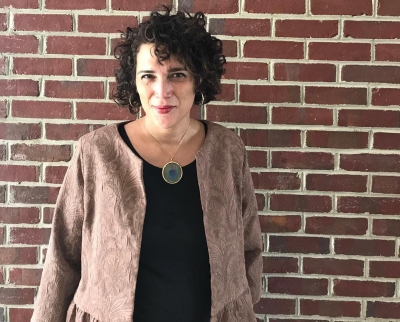Kathryn Kennedy, Trinity College of Arts & Sciences

What can a hydroelectric dam teach us about inequality, injustice, poverty and the environment? Quite a lot, it turns out, when the dam in question it sits on the border between one of the smaller countries in South America, Paraguay, and the global giant that is Brazil.
Christine Folch, an assistant professor in Cultural Anthropology, has been studying the politics of the Itaipu Dam for the past 10 years, leading to the publication of her first book on the subject in 2019. Since arriving at Duke, she has engaged students in her research in numerous ways, including experiences that allow them to see the real-world impact scholars can have in affecting policy and shaping a national discourse.
Now Folch has been awarded a prestigious fellowship from the Carnegie Corporation of New York to help advance her research in Latin America. The question she posed in her application was both nuanced and complex: “How do countries like Paraguay balance the need for development, growth and poverty alleviation with the need to protect the environment?”
An invitation to the Andrew Carnegie Fellows Program carries a $200,000 stipend, making it possible for recipients to devote up to two years to significant research and writing. It is one of the most generous awards of its kind supporting scholarship in the humanities and social sciences, and honorees include established and emerging scholars, journalists, authors, and public intellectuals.
Folch, one of 26 Carnegie Fellows selected this year, said her training as a cultural anthropologist shapes her approach in meaningful ways.
“People and communities are at the center of my research,” she said. “They can disrupt it, tell me what they think and what I should study. Academics provide data…but we are not parachuting in.”
She will also fully consider the many powerful cultural forces that can complicate how a society addresses challenges. History and colonialism, religion and spirituality, urban and rural dynamics and indigeneity and race are all factors in both creating and solving the problems facing Paraguay.
Finally, she wants to focus on how Paraguay itself is responding to this moment and what we can learn from them, rather than looking at well-meaning proposals and solutions that might come out of Geneva or New York.
“I want to know what they are doing in the thick of it,” she explained. “This is for Paraguay to lead.”
The deep familiarity that she has developed with the country and the relationships she has built with individuals across multiple sectors of government and industry have paved the way for her to observe the decision-making processes of a nation up close. “I couldn’t have done this 10 or 15 years ago,” she noted.
“This has been a project of the heart for a while, and it’s where my research is headed, but it needs a big investment of time and resources. That is what Carnegie is giving me.”